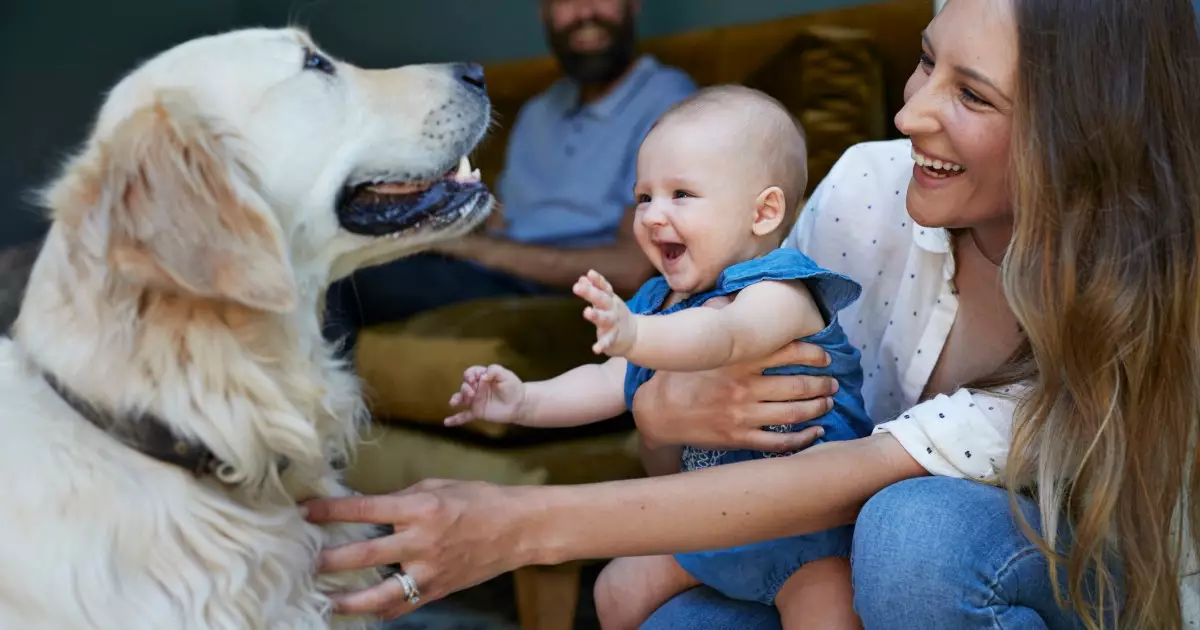When you bring a puppy into your home, you’re not just adopting a pet; you’re taking on the responsibility of shaping its behavior and personality for years to come. One of the most critical tasks in raising a dog is ensuring they are friendly and approachable. This responsibility hinges on a brief but vital developmental phase in a puppy’s life. Understanding this period and how to navigate it effectively is paramount for anyone desiring a sociable canine companion.
In the earliest weeks of a dog’s life, which primarily spans from birth to approximately four months old, puppies experience what trainers call a “sensitive period.” During this time, their brains are especially receptive to social interactions and environmental stimuli. The nature of their experiences during this phase can significantly influence their ability to interact with humans and other dogs as adults. Therefore, introducing your puppy to a variety of people and situations becomes essential.
However, this developmental window presents a paradox for new puppy owners; while this is the optimal time for socialization, the young pup is not yet vaccinated against many common canine diseases and is thus vulnerable when out in public. This challenge necessitates creative solutions to ensure that socialization happens safely and effectively.
Given the challenges of taking a young pup out into the world, the best strategy is to bring the world to your puppy. Host “puppy parties” where friends, family, and acquaintances visit your home. These gatherings should include a diverse group of people, especially men and children, who can help your pup acclimate to varied human behavior.
Children can often be intimidating for dogs that have not been exposed to them, making it critically important to foster positive associations between them and your puppy. Even if you don’t personally have kids, it’s beneficial to ensure your pup knows how to interact appropriately when they encounter children later in life. In fact, many dog bite incidents involve children, so instilling respectful behavior early on is vital for both your dog and the safety of others.
To maximize your puppy’s socialization, it’s important to vary the types of visitors who come to your home. Consistently inviting the same friends will limit their exposure and learning opportunities. Instead, embrace the opportunity to expand your social circle, inviting neighbors, coworkers, and relatives to meet your furry friend.
Encourage your guests to engage with your puppy in a way that is beneficial for the pup’s development. They can hand-feed treats, teach basic obedience commands, or simply shower your puppy with affection. This approach not only fosters trust but also prepares your dog for positive interactions with strangers in the future.
While it might not be possible for your puppy to roam freely in public spaces, there are still many avenues for exposure. Utilize carriers or specially-designed dog bags to take them with you to cafes, parks, and social events, ensuring they experience various environments and people. The key is to create an array of positive experiences that reinforce your puppy’s comfort with diverse surroundings.
In addition to interacting with humans, exposure to other dogs is equally essential. Puppies learn social cues from their peers, such as bite inhibition, through play. When a puppy bites too hard, the playmate will yelp, leading the biter to re-evaluate their actions. Engage your puppy in controlled play sessions with other dogs to help them understand the nuances of dog interactions.
While socialization focuses on positive encounters, it’s equally important to teach your puppy boundaries, especially regarding biting and mouthing. If your puppy nips you during play, respond with a yelp to convey that it hurts. Cease the play session momentarily to help them learn that biting leads to an end of fun.
Consider using time-outs as a corrective tool. If your puppy persists in biting after receiving feedback, temporarily leave the room or ignore them. This approach mirrors the lessons they would learn from their canine peers, reinforcing the idea that biting has consequences.
Ensure all family members, especially children, are aware of how to interact with the puppy. Show them how to respond appropriately if the puppy nips or becomes overzealous during playtime. This teaching helps reinforce good behavior and establishes a consistent response to the puppy’s actions, which is crucial for their training and social development.
With thoughtful approaches to socialization and consistent training, you can cultivate a friendly, well-adjusted dog who thrives in the company of both humans and fellow canines. It takes effort and commitment, but the rewards of having a sociable pet are immeasurable.

